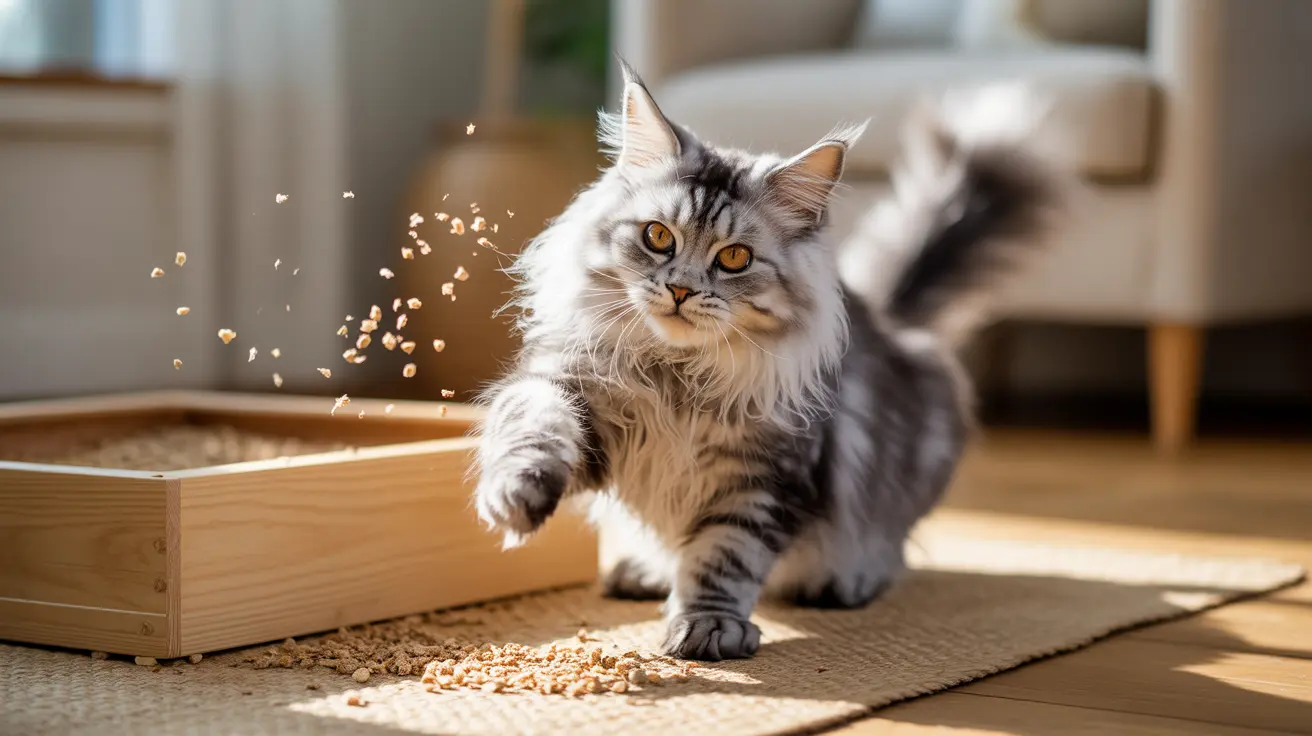Selecting the right cat litter can significantly impact both your cat's health and your home's cleanliness. With veterinary expertise guiding the way, this comprehensive guide will help you understand the best cat litter options available and make an informed choice for your feline friend.
From traditional clay formulations to innovative eco-friendly alternatives, we'll explore what veterinarians recommend and why certain litters stand out above the rest. Let's dive into the world of vet-recommended cat litters and find the perfect match for your pet.
Understanding Different Types of Vet-Recommended Cat Litter
Clumping Clay Litter
Veterinarians often recommend clumping clay litter as a top choice for most cats. Brands like Dr. Elsey's Ultra and Boxiecat Premium Clumping Clay excel in waste encapsulation and odor control. These litters typically feature low-dust formulas and are especially effective in multi-cat households.
Natural and Plant-Based Options
For environmentally conscious pet owners, vets recommend natural alternatives like sWheat Scoop (wheat-based) and okocat (wood-based). These options offer excellent biodegradability while maintaining effective odor control and are particularly suitable for cats with sensitivities.
Key Features of Veterinary-Approved Cat Litters
Dust Control and Respiratory Health
Leading veterinarians emphasize the importance of low-dust formulations, particularly for cats with respiratory issues. Crystal (silica) litters and specially formulated options like Dr. Elsey's Respiratory Relief provide minimal dust while maintaining superior odor control.
Clumping Efficiency
Strong clumping action is essential for maintaining a clean litter box. Vet-recommended brands typically feature advanced clumping technology that makes waste removal easier and more complete, helping maintain better box hygiene.
Special Considerations for Different Cat Life Stages
Kitten-Safe Options
For kittens, veterinarians recommend non-clumping, natural litters to prevent accidental ingestion. Paper-based litters like Fresh News are particularly safe for young cats learning litter box habits.
Senior Cat Comfort
Older cats benefit from softer, fine-grain litters that are gentle on sensitive paws. Vets often recommend products like okocat Super Soft or specific senior-friendly formulations.
Maintaining Optimal Litter Box Health
Veterinarians stress the importance of regular litter box maintenance. Daily scooping and complete litter changes according to manufacturer guidelines help prevent health issues and ensure your cat continues using their box properly.
Frequently Asked Questions
What are the top vet recommended cat litters for odor control and cat health?
Veterinarians typically recommend Boxiecat Premium Clumping Clay, Dr. Elsey's Ultra, and Arm & Hammer Clump & Seal for superior odor control and overall health benefits. These products offer excellent clumping ability and low dust formation.
How do I choose the best cat litter for a cat with allergies or respiratory issues?
For cats with allergies or respiratory concerns, opt for hypoallergenic, low-dust options like crystal litters or specially formulated products such as Dr. Elsey's Respiratory Relief. Avoid scented varieties and stick to unscented, dust-free formulations.
Are natural or biodegradable cat litters a good alternative to traditional clay, and what are the best options?
Yes, natural litters can be excellent alternatives. Top vet-recommended options include sWheat Scoop (wheat-based), okocat (wood-based), and World's Best Cat Litter (corn-based). These provide good odor control while being environmentally friendly.
How often should I change my cat's litter, and what's the best way to transition to a new litter?
Complete litter changes should occur every 2-4 weeks, depending on the type of litter and number of cats. When transitioning, gradually mix the new litter with the old over 7-10 days, increasing the proportion of new litter gradually to prevent litter box aversion.
What should I look for in a cat litter for kittens, senior cats, or cats with sensitive paws?
For kittens, choose non-clumping, natural litters to prevent ingestion. Senior cats and those with sensitive paws benefit from soft, fine-grain litters. Look for products specifically labeled for these special needs, and avoid harsh or sharp particles that might cause discomfort.
Conclusion
Choosing the right cat litter is crucial for your cat's health and happiness. By following veterinary recommendations and considering your cat's specific needs, you can select a litter that promotes good litter box habits while maintaining a clean and healthy environment for both you and your feline companion.






